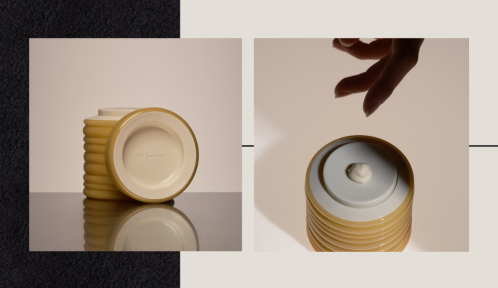Our editors independently select these products. Making a purchase through our links may earn Well+Good a commission
Practicing good oral hygiene does more than maintain a beautiful smile. Unhealthy gums can exacerbate health issues throughout the body through the oral-systemic link, explains Sam Low, DDS, MS, a past president of the American Academy of Periodontology, a specialty of dentistry that focuses on the supporting structures of teeth, like the gums. For example, research has shown a link between cardiovascular disease and periodontitis (gum disease).
Experts in This Article
Sam Low, DDS, MS, is a past president of the American Academy of Periodontology.
“We never want to suggest that just because you have gum disease, you’re going to have a heart attack,” says Dr. Low, who is a spokesperson for Philips, a brand with a major oral-care catalog. “But what we have been able to establish is that the chronic inflammatory reactions that occur with gum disease parallel what you see in other major chronic inflammatory diseases, especially cardiovascular disease, diabetes, respiratory diseases, rheumatoid arthritis, recent data with Alzheimer’s.”
According to 2012 data from the Centers for Disease Control and Prevention, about 47 percent of adults age 30 and older have some form of periodontal disease. Gum disease, which can cause serious gum and jawbone damage, costs Americans $54 billion per year in lost wages. Severe gum disease is the sixth most prevalent disease in the world. Symptoms of gum disease, like swollen gums and painful chewing, are easy to miss or brush off, says Dr. Low. So getting your regular checkups is imperative, as gum disease can lead to other issues in the body.
Untreated infections from gum disease can cause blood sugar to rise, making it more difficult to manage diabetes. “I would imagine that there are patients that are having difficulty controlling their diabetes and have not put two and two together,” says Dr. Low. Additionally, gum disease can worsen lung diseases by increasing inflammation and passing bacteria into already compromised lungs. “If the bacteria are in the mouth and you’re breathing these bacteria 24 hours a day, then they’re going into the lungs,” he says. “We can show that relationship with the COVID-19 scenario.” Research has shown that COVID-19 patients with oral health issues like painful or bleeding gums were more likely to die than those who did not.
“It wasn’t a surprise to us because if you’re aware of COVID, no one actually dies from the virus, you die from the body’s reaction to the virus,” says Dr. Low. COVID-19 can start a cytokine storm in the body, which is when the immune system overacts and floods your bloodstream with cytokines, which are inflammatory proteins that can kill tissue and damage organs. “And that generally destroys the lung material to where it’s not receptive to the intake of oxygen. That is exactly the way perio works. Perio is not about bacteria. Perio is about a patient’s susceptibility to overreacting to the bacteria.”
Dr. Low shares this information not to scare you into the dentist’s chair. “We don’t want people to have to be motivated to come see us because they may die,” he says. But if you are already dealing with or are predisposed to other health issues, staying on top of oral health should be among your priorities. “If you’re susceptible already to a complicated pregnancy, if you’re already hypertensive, if you already have stints, if you already have a familiar history of cardiovascular disease, if you’re a diabetic and you’re uncontrolled and you are also genetically susceptible to perio, then one creates almost a synergistic effect to make it worse.”
The most important thing you can do is visit a dentist every six months for a checkup and when you see a dentist, you should tell them about your medical history. While there is some collaboration between dentists and physicians (many cardiologists require a clearance from a dentist before performing heart surgery), Dr. Low hopes to see it continue to increase. “You are starting to see, and I think COVID started this, more and more, there are folks starting to talk about putting dental clinics in medical clinics, putting medical clinics in dental clinics.”
Additionally, Dr. Low says it’s important to stay on top of your at-home oral care. “It would be extremely naive to think that what we do in a dental office is enough. The bacteria will come back very quickly because the mouth is just a great vessel to grow those bacteria,” he says. Brush your teeth for two minutes twice a day, preferably, with an electric toothbrush. “I don’t want to belittle our manual toothbrushing, but my goodness, this morning, you did not get up and make a call on a rotary or push-button phone?” And be sure to floss. “Periodontal disease is not on the out and in of teeth, it’s in between teeth.” Keep in mind that good oral health has implications far beyond the mouth and that staying on top of it can help you live a longer, happier life.
Oh hi! You look like someone who loves free workouts, discounts for cult-fave wellness brands, and exclusive Well+Good content. Sign up for Well+, our online community of wellness insiders, and unlock your rewards instantly.
Sign Up for Our Daily Newsletter
Get all the latest in wellness, trends, food, fitness, beauty, and more delivered right to your inbox.
Got it, you've been added to our email list.











